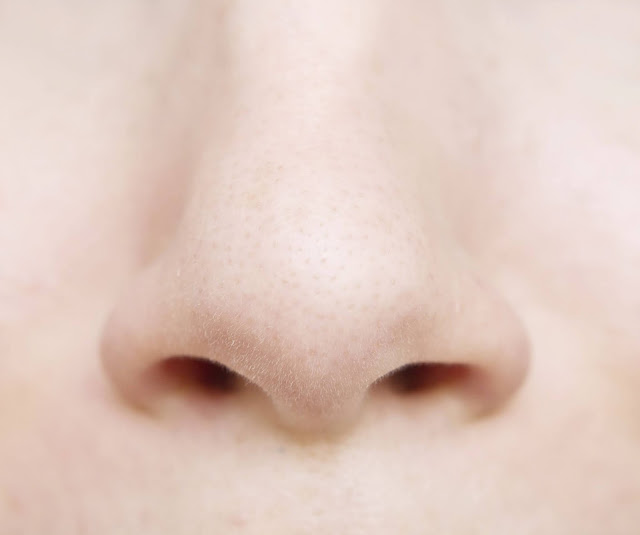According to this study published in September 2021 in Arthritis Research and Therapy BMC part of Springer Nature, the sense of smell is impaired in Sjogren's syndrome patients. So if you have Sjogren's (SS) and you thought you were losing your sense of smell you are not going crazy!
The loss of the sense of smell does not really receive much attention in the large list of possible Sjogren's symptoms probably because it is not life-threatening. It can significantly reduce the quality of life, especially as it is often combined with the loss of taste. This causes a changed relationship with eating and may lead to unbalanced food intake.
Researchers from Drum Tower Hospital in Nanjing, China have confirmed not only do SS patients have problems with their sense of smell but also there is a close connection between olfactory dysfunction and disease severity and the immune system.
Olfactory dysfunction (OD), is the reduced or distorted ability to smell during sniffing or eating.
The aim of the study was to determine the olfactory function including smell threshold, identification, and memory in a large cohort of patients with primary Sjögren’s syndrome (pSS) by computerized testing. Researchers also wanted to investigate a potential relationship between disease activity and olfactory capacity and evaluate whether the sense of smell could be a diagnostic marker or predict pSS.
52 patients with pSS were investigated. Their ages ranged from 21 to 70 years and the duration of their disease ranged from 0.1 to 20 years. There were 52 people in the control group and there was no history of smoking or alcohol consumption in either group.
The smell test results showed a significant decrease in sense of smell in patients with pSS compared to the healthy controls. They had a significantly lower smell threshold and lower scores for both olfactory identification and olfactory memory.
Olfactory identification is being able to identify smells.
Olfactory memory refers to the recollection of odors.
Four major results were obtained:
(1) pSS patients exhibit significantly deteriorated smell function, with 13.5% of subjects suffering from anosmia, a complete loss of smell, and 19.2% suffering from hyposmia which is when the ability to detect odor is reduced.
(2) ESSDAI and ESSPRI had a negative impact on olfactory function and impaired smell function was associated with several organ involvements and autoantibodies.
(3) The proportion of dysosmia, disordered smell perception, in patients evaluated by subjective assessment was higher than determined by objective examination.
(4) Olfactory function was not significantly affected by pSS treatment.
Together, these data collectively highlight the reduction of olfactory function in pSS patients correlate with disease activity and could have useful value in the diagnosis of primary SS.
The second of these four major results was of interest as it showed that the symptoms of dryness, fatigue, and limb pain were associated with lower olfactory scores. Also, patients with involvement of the thyroid showed significantly decreased scores. As did patients with hypocomplementemia compared with those without. Scores were significantly lower in patients with antinuclear antibodies and anti-SSA antibodies. There was no correlation of smell test scores between pSS patients with anti-SSB antibody and RF and those without.
Hypocomplementemia is an abnormal deficiency of complement in the blood. There are nine major complement proteins.
Antinuclear antibodies are antibodies that attack your own healthy cells. It's called "antinuclear" because it targets the nucleus of the cells.
Anti-SSA antibodies is an Autoantibody that may be elevated in SS. It is also called Anti-Ro and Anti-Sjögren’s syndrome A (anti-SSA) (Ro).
The study concluded "our results demonstrated a significant reduction in the olfactory abilities of pSS patients, which correlated with disease activity. Although the exact mechanism of olfactory impairment has yet to be elucidated, the possibility of an immune/inflammation-mediated mechanism is intriguing. Therefore, physicians are encouraged to perform routine smell test in patients with pSS and educate them on methods to cope with it for better quality of life."
The EULAR Sjögren's syndrome (SS) disease activity index (ESSDAI) is a clinical index that measures disease activity in primary Sjögren's syndrome. ESSDAI is validated and used in most clinical studies and ongoing randomised controlled trials.
The ESSPRI is a patient-reported index designed to assess the severity of patients' symptoms in primary SS.
Xu, X., Geng, L., Chen, C. et al. Olfactory impairment in patients with primary Sjogren’s syndrome and its correlation with organ involvement and immunological abnormalities. Arthritis Res Ther 23, 250 (2021). https://doi.org/10.1186/s13075-021-02624-6

Comments
Post a Comment